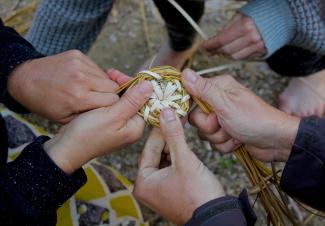
Bee Time
Bee Time artist residency explores the intersection of art and ecology. Their programs focus on researching the interrelationships between beekeeper, bee and landscape in a particular region, thus studying the influences of local culture and agriculture practices on the honeybee and vice versa. They introduce participants to concepts of bee centred beekeeping, and applied systems thinking. Working out of the understanding of the honeybee colony as a super-organism – a being with many individual bees comprising a unified consciousness, participants have the opportunity to practice self-organising social models inspired by hive consciousness by working together in a non hierarchical way.
Artists applying to this programme need to know that they will be immersed in communal living as well as working in a way that may be atypical to other residency programmes, in the sense that there are many shared experiences and programmed activities with the rest of the participants within a loose, emerging schedule.
The hosts have four large studio spaces in old Moorish water mills, next to a Roman aquaduct, various waterfalls, and swimming holes. They also work outside a lot in apiaries and in the outdoor spaces by the mills. Artists can let the hosts know what their needs are in terms of spaces and they can endeavor to find them the most appropriate space. There is a common kitchen space where hosts and artists cook and eat communally.
The hosts rent a house in the village which has four large bedrooms, with shared occupancy.
There is an extensive library of bee related books for artist's use. The hosts can provide technical assistance, printing, and certain materials, subject to prior discussion.
Santa Lucia is a village in Southern Andalucia, 50 km from Cadiz. Participants will encounter a relatively remote area of Spain which is dealing with considerable issues of unemployment, migration from north Africa, agricultural degradation, and a growing economic reliance on tourism. Through exploring the area’s traditional, as well as commercial, agricultural practices, participants will be able to engage with the complex ecological issues local communities are facing.


